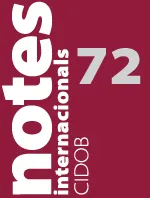A Fog of Myths about North Korea

Publication date:
04/2013
Download PDF
Notes internacionals CIDOB, núm. 72
- Rather than nuclear weapons, North Korea’s greatest strength is the capacity to behave badly: by carefully choosing the right time, it knows its actions will force big powers to pay close attention even though they may grind their teeth.
- If China is dragging its feet on the issue of North Korea, it is also because Beijing has a stake in the survival of the Kim Jong-eun regime. The collapse of North Korea could bring a stream of refugees to China, which already has 2 million ethnic Koreans and threaten the stability of the border region.
- A Korean unification will be under Seoul’s rules. The greater prominence of South Korea will change geopolitical conditions in East Asia. Japan, moreover, also has concerns regarding the emergence of a unified Korea and the discrimination faced by Koreans in Japan—the largest minority in the country.
- In a state born of guerrilla struggle, leadership requires endless battles and if Kim’s leadership itself is not under threat, he needs to embellish his own credentials. Hence, his belligerence is intended as a manoeuvre to outflank the military while preparing the ground to initiate a more pragmatic economic policy.
What North Korea needs above all is a deeper economic and political engagement with the rest of the world. Sanctions disproportionately impact on the weakest sections of society and perpetuate its abiding poverty. This only threatens the stability of the regime and forces it to increase its investments into its nuclear arsenal as a shield.
(read more in the pdf)